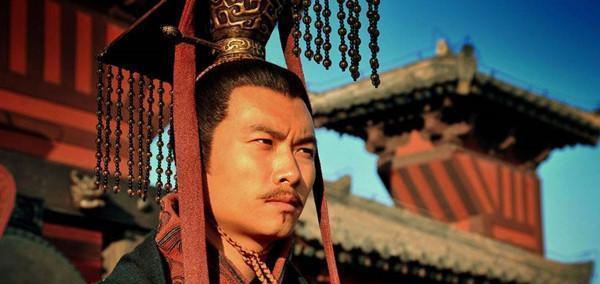The Three Kingdoms idiom introduced in this article is from the "Chronicle of the Three Kingdoms And Zhu Huan", which was during the conquest of Eastern Wu by Cao Pi's three-way army in the first month of the second year of Eastern Wu (223 AD), involving two characters, one was the Eastern Wu general Zhu Huan, and the other was the famous Cao Wei general Cao Ren. Let's take a look at the original text:

In the first year of Huang Wu's reign, Wei made Sima Cao Ren ride tens of thousands of horses to Xiang Shu, and Ren wanted to attack the prefecture with his troops, and falsely raised his voice first, intending to attack Xianxi in the east. Huan's troops will go to Xianxi, and after the outbreak, The Soldier Ren marches to refuse to ask for seventy miles. Huan dispatched the envoys to pursue the Xianxi soldiers, and the soldiers did not arrive and Ren Xiang arrived. Shi Huan's men and his soldiers, 5,000 people, and all the generals had their own fears.
Huan Yuzhi said: "Where two armies meet, the victory or defeat is in the general, not in the widows." Zhu Junwen Cao Ren used soldiers to practice the master, who is the evil and the evil? The art of war is therefore called the guest multiplied and the master is half, which is said to be in the plain, there is no city to guard, and it is also said that the soldiers are brave and timid. Today's people are not wise and courageous, plus their soldiers are very timid, but also thousands of miles of footwork, people and horses are in trouble, Huan and the armies, jointly occupy the high city, the south of the river, the north back of the mountain mausoleum, to wait for the work, the main guest, this hundred battles and victories are also the momentum. Although Cao Pi came from himself, he was not worried enough, and he was evil! ”
The story goes like this: In the second year of Huang Wu of Eastern Wu (223 AD), Cao Ren, the Grand Sima of Cao Wei, led tens of thousands of troops to attack the important town of Huainan in Eastern Wu. Cao Ren deliberately declared that he would attack Xianxi, thirty miles east of Fusu, in an attempt to use the strategy of attacking the west from the east to induce the Eastern Wu Shu shou general and the FuSu governor Zhu Huan to send troops to support Xianxi and seize the opportunity to occupy The Xi.
Cao Ren's strategy of attacking the east and the west was successful, and Zhu Huan ordered some troops to be drawn from the city of Shushu to rush to the aid of Xianxi. After learning of Zhu Huan's plan, Cao Ren led the main force to quickly pounce on Xianxi. At this time, the Eastern Wu garrison of Zhen shoushu had only 5,000 men. Only then did Zhu Huan realize that he had fallen for Cao Ren. Cao Ren's army approached the city. There was a panic in the city, and many generals were terrified. In the face of danger, Zhu Huan was not afraid of danger. He gathered his subordinates and said: "When the two armies are fighting, the key to victory or defeat is not the number of troops, but the ability of the generals. Do you think that the ability of the enemy general Cao Ren is superior or inferior compared to that of Zhu Huan? The art of war has clouds: 'the guest is multiplied and the master is half', saying that the strength of the defending side is half of the attacking side.
The enemy general Cao Ren we are facing now is not a handsome man with both civil and military skills, and most of his subordinates are greedy and afraid of death, and the enemy army has traveled thousands of miles, and its men and horses are tired and their combat effectiveness is not strong. However, the town guarded by our army is bordered by the Yangtze River in the south and the mountains and mausoleums in the north, which is easy to defend and difficult to attack. Coupled with the fact that our army is waiting for work and is fully prepared, this is a situation in which even if it fights a hundred times, it can win this victory! Even if Cao Pi came in person, how could it be me, let alone Cao Ren! ”
The idiom to be said in this article comes from Zhu Huan's words, called "a hundred battles and a hundred victories", which means that every battle must be won. However, this idiom is not the first coined by Zhu Huan, but comes from the "Art of War of Sun Tzu" in "a hundred battles and a hundred victories, not the good of the good".
Objectively speaking, Zhu Huan's pre-war mobilization only played a role in boosting morale, and could not change the situation in which the enemy was strong and we were weak, as long as Cao Ren could deploy properly, the probability of success was very great. However, before the battle began, Cao Ren made a fatal mistake and sent the generals Chang Diao and Wang Shuang to lead 5,000 soldiers to attack WushuZhou, leaving 10,000 soldiers as a backup, and only sent his son Cao Tai to attack Wusu.
As a result, the cao army's siege strength was greatly reduced, and Zhu Huan finally blocked the cao army's attack by relying on strong fortifications. As the battle progressed, the Eastern Wu army not only defended The Shu, but also defeated the Cao Army at the Prefecture. The Cao army suffered heavy casualties and had to withdraw from the battlefield. This battle was also the last battle of the famous general Cao Ren, which was originally a sure victory, but unexpectedly lost to Zhu Huan.
Reference book: Romance of the Three Kingdoms